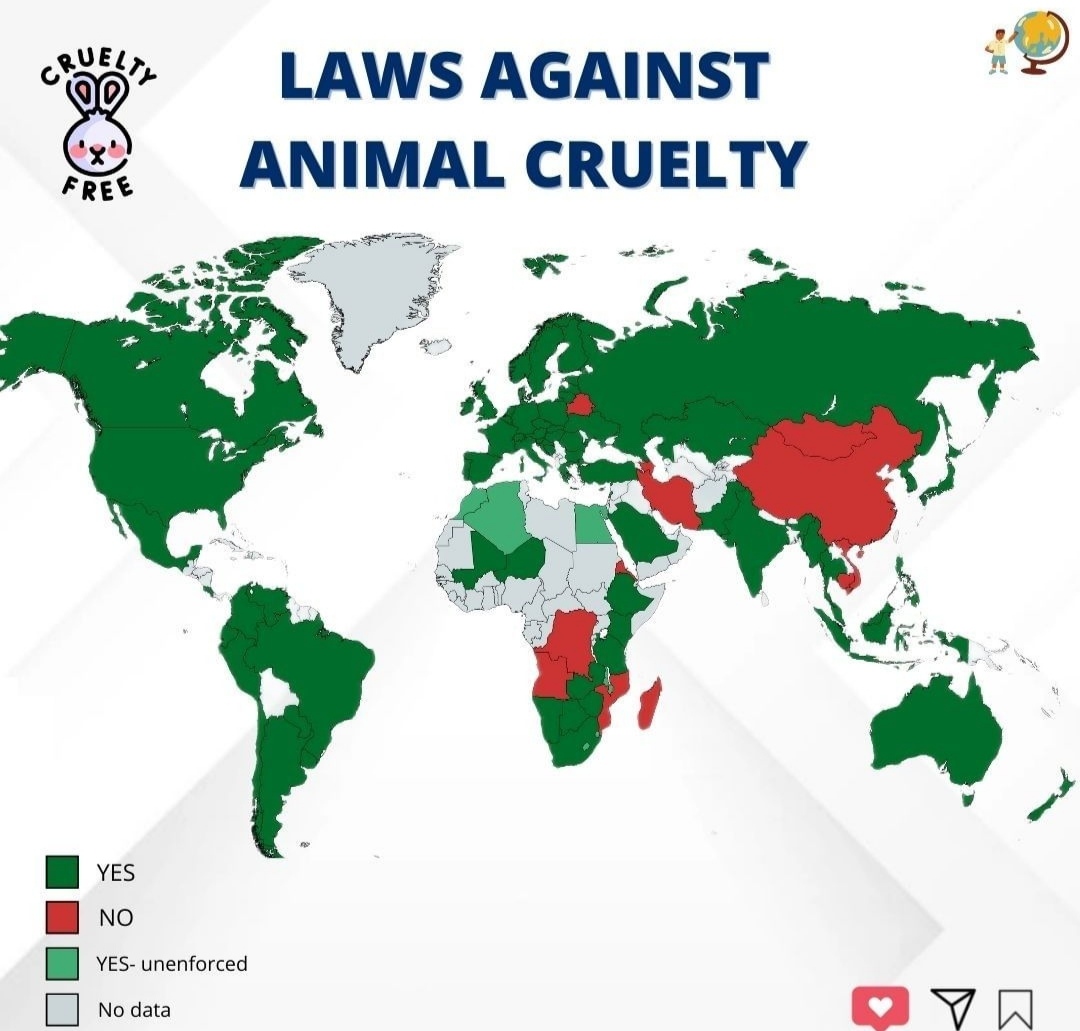When discussing animal cruelty laws, many individuals tend to prioritize their own country’s regulations, often assuming they are the most stringent. However, an examination of international animal welfare legislation reveals intriguing disparities and a surprising hierarchy in punishment severity. This article delves into the complexities of animal cruelty laws across the globe, ultimately addressing the question: which country imposes the longest punishments for animal cruelty?
First, it is essential to define what constitutes animal cruelty. Animal cruelty encompasses a range of harmful behaviors towards animals, including neglect, abuse, and exploitation. Legal definitions vary widely between countries, influenced by cultural attitudes toward animals and historical precedents. Some nations treat animals primarily as property, while others elevate their status, recognizing them as sentient beings deserving of protection.
In considering penalties for animal cruelty, it is vital to analyze the legal frameworks of various countries. The United Kingdom, for instance, has made significant strides in animal welfare legislation. The Animal Welfare Act of 2006 mandates that animal owners must fulfill certain welfare needs. Breaches of this law can result in imprisonment for up to six months, alongside substantial fines. While these penalties are pivotal, they pale in comparison to those enforced in other countries.
On the opposite end of the spectrum lies Switzerland. Renowned for its progressive stance on animal rights, Switzerland enshrined animal welfare in its constitution. Swiss law not only protects animals but also mandates that owners must consider their pets’ natural behaviors and socialization needs. Violation of these provisions can lead to severe consequences, such as fines or imprisonment. Yet, when it comes to strict sentencing related to egregious animal cruelty, Switzerland’s penalties typically hover around three years in prison.
As we traverse the globe, another noteworthy contender emerges: Germany. Under its Animal Protection Act, Germany enforces strict penalties for acts of cruelty against animals, ranging from fines to imprisonment for up to three years. German law reflects a societal recognition of animals as sentient beings, thereby committing the state to safeguard their welfare.
However, when considering countries with the longest and most severe punishments for animal cruelty, one must look beyond Europe. The Philippines stands out prominently. Although often overlooked, the Animal Welfare Act of 1998 in the Philippines provides for extensive penalties. Convictions related to animal cruelty can lead to severe prison sentences of up to three years, accompanied by hefty fines reaching thousands of pesos. The longer sentences reflect a commitment to animal rights ingrained in the country’s socio-cultural fabric and increasing public awareness about animal welfare.
A more surprising observation arises when examining the legal repercussions in certain regions of Asia. In Taiwan, for example, the Animal Protection Act was amended in 2015, significantly increasing penalties associated with animal cruelty. Offenders can face up to two years in prison or fines exceeding hundreds of thousands of Taiwanese dollars. This transformation in legal enforcement correlates with changing societal attitudes towards animals, as awareness and compassion towards their plight surge among the Taiwanese populace.
Yet another noteworthy example can be drawn from the United States. While varying by state, animal cruelty laws in parts of the country can lead to severe consequences. For instance, in Michigan, those found guilty of egregious cruelty may face up to four years in prison, especially if it involves severe harm or death to an animal. This indicates a growing recognition of animal rights that resonates across state lines despite the lack of a cohesive federal standard.
Despite these regional efforts, it is essential to question the effectiveness of existing animal cruelty laws. The existence of severe penalties does not always correlate with lower rates of animal abuse. For instance, while many European nations have exemplary laws in place, animal cruelty cases persist, suggesting that punishment alone does not suffice in mitigating such behavior. Prevention, education, and societal change are equally paramount. The public’s evolving perception of animals as sentient beings rather than mere commodities is the cornerstone of real progress in animal welfare.
Moreover, the fascination with animal cruelty laws transcends the mere imposition of penalties. It illustrates cultural values, reflects societal evolution, and unveils complexities inherent in human-animal relationships. Countries with profound legal consequences often underscore a collective moral stance that prioritizes the welfare of animals. Conversely, nations lacking stringent measures may still harbor developing understandings and evolving frameworks that generate hope for the future.
As the global discourse surrounding animal welfare continues to expand, it is imperative for activists, lawmakers, and citizens alike to advocate for comprehensive reforms that address both punitive and preventive measures. Education initiatives, sympathetic legislation, and community engagement must work in unison to eradicate the scourge of animal cruelty.
The question of which country has the longest punishments for animal cruelty invites a wider conversation regarding our ethical obligations to all living beings. It encourages a reevaluation of societal values and the relationships individuals nurture with animals. In numerically dissecting laws across nations, we find a compelling narrative interwoven with moral imperatives, cultural introspection, and the potential for transformative change. Thus, our fascination must be fueled not only by statistics but by a shared commitment to fostering a world where animal welfare is prioritized and cruelty is no longer tolerated.








